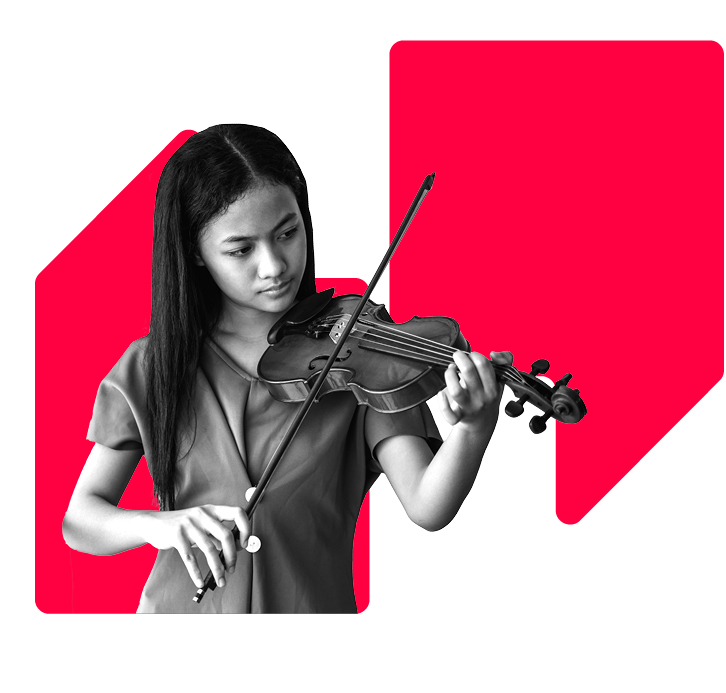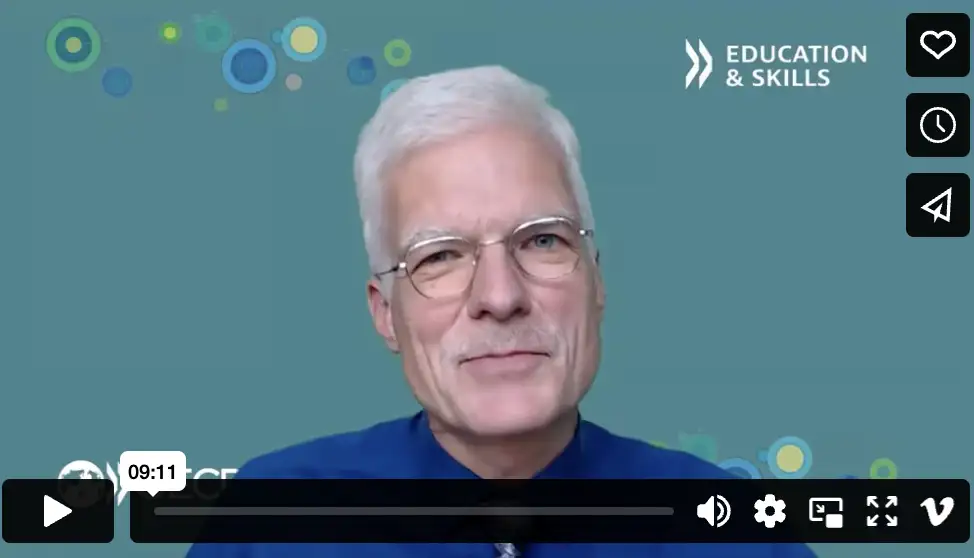WHAT THE EVIDENCE TELLS US
CLA gathers new data and high-quality evidence to support better understanding of the value of an arts-rich education for all children and young people. It uses this to craft an accessible new evidence-based value narrative and disseminate it to influence change.
Quick links

Just announced
CLA is pleased to be publishing its first annual Report Card, providing an overview of the current state of arts education in England and making the case for a new policy approach. We are expanding our reporting across five new key indicators to provide a detailed survey of children’s and young people’s access to the Arts through their schooling in England. We now have a very clear view of what has been happening to Expressive Arts education in state schools over the past 14 years – since the introduction of the EBacc – and it is a stark picture of erosion and inequality.
CLA’s new Evidence and Value Narrative Working Group was first convened in October 2023 and is advising on, overseeing and developing/commissioning CLA’s evidence gathering and analysis – on the value of an arts-rich education for every child and young person – with a particular focus on social impact.
The Group includes representatives from several UK universities, together with leading arts education organisations and specialists, and will be considering a range of research approaches, including university-led Rapid Evidence Reviews. The Group will also be overseeing the creation of an accessible evidence-based value narrative.
Group Members:
Jacqui O’Hanlon MBE
Director of Learning & National Partnerships, RSC (Chair)
Eleonora Belfiore
Director, Interdisciplinary Centre of Social Inclusion & Cultural Diversity, University of Aberdeen
Senay Camgöz
Policy Adviser, SOLT/UK Theatre
Anna Cutler
Independent consultant
Dr Steph Hawke
Head of Impact and Learning, Curious Minds
Anthea Hollist
Head of Qualifications & Assessment, University of the Arts, London
Prof. Penny Hay
Professor of Imagination, Bath Spa University
Matthew McCallum
Associate Director: Programmes, Arts & Humanities Research Council
Dave O’Brien
Chancellor’s Fellow in Cultural & Creative Industries at the University of Edinburgh; co-investigator at the Arts & Humanities Research Council’s Creative Industries Policy & Evidence Centre (AHRC PEC)
Dr David Parker
Independent consultant
Catherine Sutton
Head of Programme: Education, PHF
Prof. Pat Thompson
School of Education, University of Nottingham; CLA Senior Evidence Associate
Baz Ramaiah
CLA Policy Associate
Derri Burdon
CLA Co-Chair
Sally Bacon OBE
CLA Co-Chair
Tina Ramdeen
CLA Trustee
CLA secretariat
Hanna Lambert, Curious Minds
Remit
To advise on, oversee and develop/commission CLA’s evidence gathering and analysis, on the value of an arts-rich education for every child and young person, with a particular focus on social impact. To advise on, oversee and develop/commission/test an accessible evidence-based value narrative, in order to support better understanding of the value of an arts-rich education for all children and young people, and to support advocacy in this field.
Timeframe
October 2023 to end 2024 (tbc)
Key questions:
- What we are trying to influence with evidence (see CLA Strategy Map)
- Who are we trying to influence with evidence and how? (see CLA Strategy Map)
- Focus: what’s already known/what are the evidence gaps? What new research is needed? What questions are we trying to answer?
- What type/mix of research approaches and methods will best answer the research questions and engage our target audiences?
- How can we engage audiences with the research process and findings to maximise research influence (value narrative)?
We occasionally feature films that are particularly helpful for case-making. In 2021 CLA was delighted to have a presentation at our autumn Advisory Panel meeting from Andreas Schleicher, Director, Directorate of Education and Skills at the OECD.
The CLA Key Research Findings are helpful for anyone wanting to make the case for arts subjects or cultural learning. Read more.
Our Key Research Findings use evidence from cohort studies with large sample sizes, and research with control groups, to establish the outcomes of cultural learning across the key findings, including health, employability and civic engagement.
The new CLA Evidence Working Group will be revisiting these findings and publishing new and updated evidence in 2024/5.
You can download posters of the CLA Key Research Findings:
CLA has published six briefing papers between 2017 and 2022, in partnership with a range of leading education or policy organisations and funders.
Publishing partners have included the Association of School and College Leadership; the Centre for Research in Early Childhood; the Edge Foundation; Nesta; Paul Hamlyn Foundation; and Place2Be.
Early Years & The Arts from CLA and Centre for Research in Early Childhood (CREC)
Early Years & The Arts full references
Early Years & The Arts large print version
The Arts for Every Child Briefing from CLA and Paul Hamlyn Foundation
Arts for every child Briefing full references
The Arts in Schools Briefing from the CLA and ASCL (Association of School and College Leaders)
Arts in Schools Briefing full references
The Arts, Health & Wellbeing Briefing from CLA and a Place2Be
The Arts, Health & Wellbeing Briefing full references
Employability & Enterprise Briefing from CLA and the Edge Foundation
Employability and Enterprise Briefing full references
STEAM Briefing from the CLA and Nesta
STEAM Briefing full references
We occasionally publish technical briefings when areas of policy are particularly complex or when we have more content to cover than can be addressed through our Newsletters.
Arts teaching hours and workforce. June 2021
Patterns in GCSE and A Level entries 2010 to 2020 England only. August 2020
What is the English Baccalaureate?
What is Cultural Capital? (2019)
Independent Schools Headteacher Interviews
When the Ofsted framework in 2019 required school to develop their pupils’ cultural capital we created a summary of some of the history, academic thinking and definitions of this term. Our blog, written by Sam Cairns, had 20,000 views in 2019.
In 2012 CLA published a report on why independent schools value arts and culture, following interviews with the heads of five leading independent schools, including Eton and Wellington.
The headteachers interviewed all stated that cultural learning improved attainment; that they felt a duty to provide cultural learning to the children in their care; were responding to the demands and expectations of parents; needed to provide excellent opportunities for reputational reasons; that delivering high quality cultural learning required specialist teachers and a commitment from the school; and that they had doubts about existing systems of accountability including the English Baccalaureate and National Curriculum.





